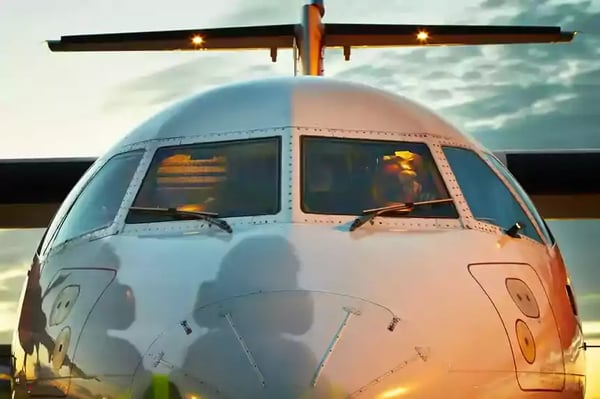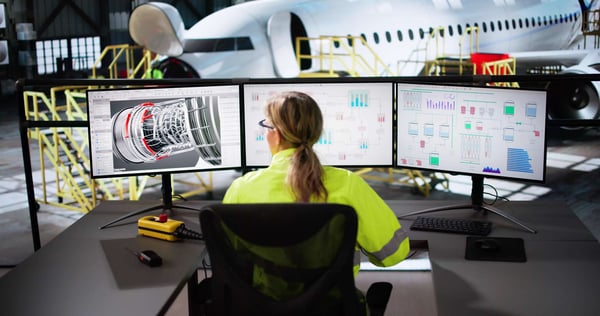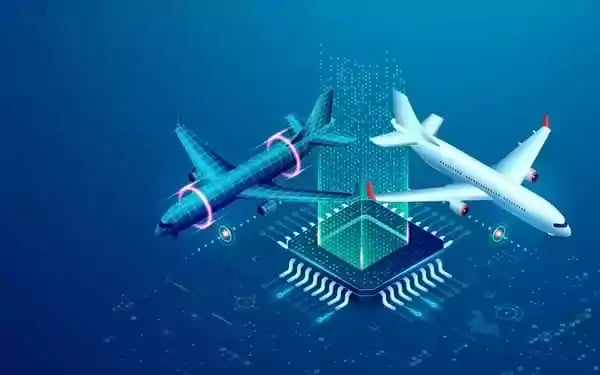In the fast-paced world of aviation, efficiency, safety, and innovation are paramount. To meet these demands, the industry has embraced a paradigm shift known as Maintenance 4.0, a concept that blends cutting-edge technology and well-optimized processes to reshape the landscape of aircraft maintenance.
Understanding Maintenance 4.0
Maintenance 4.0 is not just a trendy term but a revolutionary way of handling aircraft maintenance that aims to make the entire process more intelligent, efficient, and safer. At its core, Maintenance 4.0 seeks to leverage digital technologies to streamline maintenance processes and revolutionize the aviation industry.
To grasp the essence of Maintenance 4.0, it is important to first understand its relationship with Industry 4.0. Industry 4.0 is a broad concept encompassing various advanced techniques and technologies that have revolutionized manufacturing and industrial processes. Maintenance 4.0, on the other hand, is a specialized subset of Industry 4.0, specifically tailored to the unique requirements of aircraft maintenance.
.webp?width=778&height=407&name=iStock-1159670000%20(1).webp)
The pillars of Maintenance 4.0
Maintenance 4.0 introduces several key concepts and technologies that drive its evolution:
- Predictive Maintenance: It is the utilization of technology to identify the parts of an aircraft that require maintenance beforehand. By accessing real-time sensor data and maintenance logs, the appropriate software can accurately pinpoint when a maintenance check will be required. This proactive approach allows for timely maintenance and minimizes unscheduled downtime.
- Augmented and Virtual Reality: These technologies provide invaluable tools for training and remote assistance. Maintenance personnel can access detailed instructions and guidance while performing tasks, enhancing accuracy and efficiency.
- Robotics and Drones: Drones are increasingly used for aircraft inspections. Their ability to access difficult-to-reach areas, coupled with AI-powered inspections, improves the accuracy and speed of assessments.
- Artificial Intelligence: AI plays a crucial role in analyzing data, optimizing maintenance schedules, and enhancing decision-making processes.
The value of safety
One of the major misconceptions about digitization and efficiency improvements in maintenance is that they compromise safety. However, the reality is quite the opposite. Maintenance 4.0 is designed to enhance safety by introducing reliable, intelligent tools that minimize human error and increase the focus on safety within the industry.
Cost savings and efficiency gains
While the primary focus is on safety, Maintenance 4.0 also delivers substantial cost savings and efficiency gains. Modern aviation faces the challenge of staff shortages, making it crucial to find ways to streamline and optimize maintenance processes. By reducing repetitive tasks, automating planning, and harnessing the power of data-driven decision-making, Maintenance 4.0 helps organizations do more with less.
Empowering the workforce
Contrary to the fear that digitalization might lead to job losses, Maintenance 4.0 is about empowering the workforce. It equips professionals with the tools and knowledge they need to perform their jobs more effectively. It is not about replacing jobs; it's about making them more attractive and engaging.
The future of aircraft maintenance
The aviation industry is constantly evolving, and we can expect it to continue adapting to new technologies. In the future, we can anticipate significant advancements in aircraft maintenance, such as the use of augmented and virtual reality for training, remote assistance, and complex procedures. Robotics and drones will also be widely adopted for various inspections, making the process faster and safer. Moreover, AI will be utilized for planning, ensuring more reliable long-term planning, balanced rosters, optimal resource allocation, and improved decision-making.
While the industry is adapting to these innovations, there are challenges. Many organizations are still clinging to traditional, manual methods. Adapting to a digital landscape requires a fundamental shift in mindset and processes, something not all entities are prepared for. Regulatory authorities also need to align with these changes to ensure safety and compliance.
Taking the first step
For organizations with limited budgets or resources looking to embrace Maintenance 4.0, the key is to start small. Standardizing processes and automating repetitive tasks can be the initial steps toward realizing the benefits of digitization. By beginning the journey incrementally, even smaller organizations can reap the rewards.
Step into Maintenance 4.0 and transform your tooling process today.
Maintenance 4.0 is not just a technological shift; it's a cultural change that promises to enhance safety, efficiency, and job satisfaction within the aviation industry. As technology continues to advance, the potential for further improvements in aircraft maintenance is immense. Embracing these changes will not only benefit individual organizations but will drive the industry as a whole into the 21st century.
"It is all about the industry as a whole. We need to be working together. It is not about being competitors. It is about the industry as a whole going on this new journey for technology and digitalization. We need to work together, to share ideas, to come up with new solutions. That will, in my opinion, really bring maintenance aviation into the 21st century, but we need to do it all together." - Remon Sweers, VP of Products.


 Elisabeth Tadoe
Elisabeth Tadoe
 If you are interested in knowing how you can improve your efficiency in maintenance operations, book a 30-minutes discovery call with us.
If you are interested in knowing how you can improve your efficiency in maintenance operations, book a 30-minutes discovery call with us.

